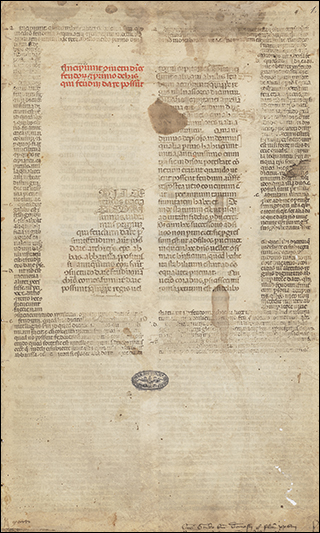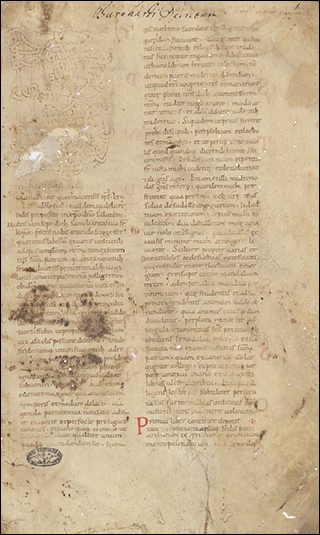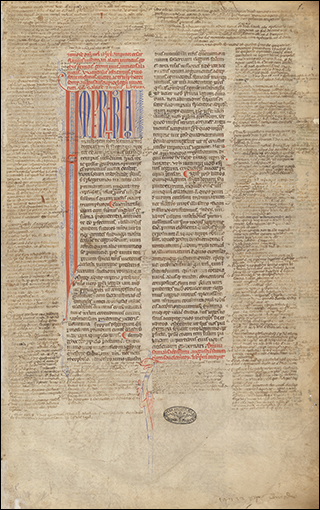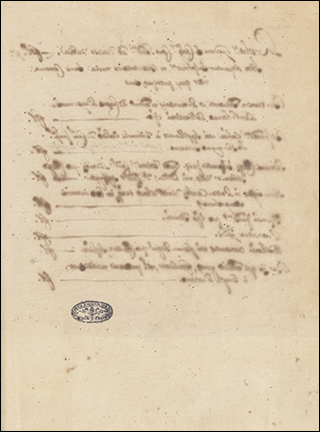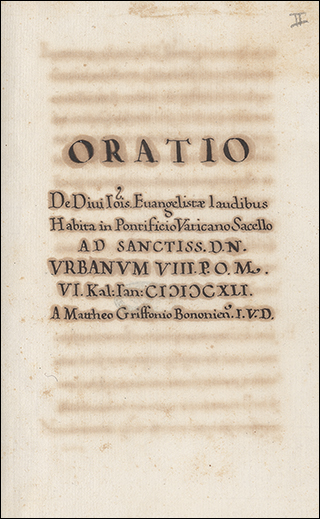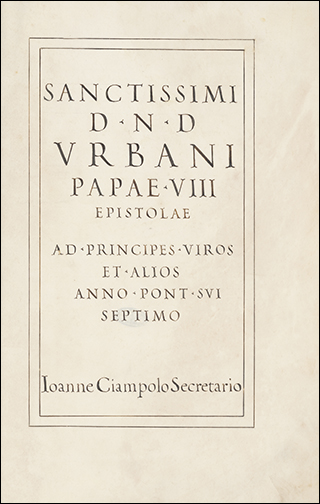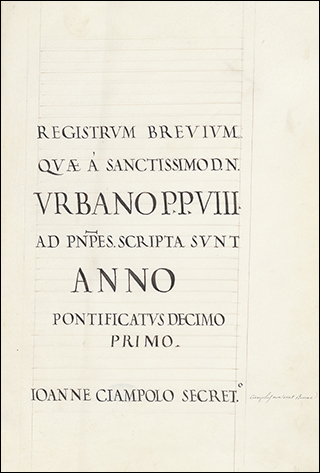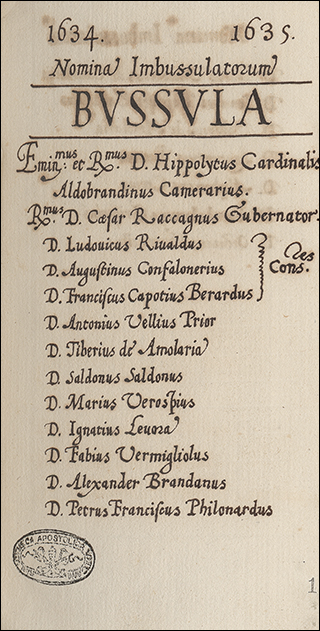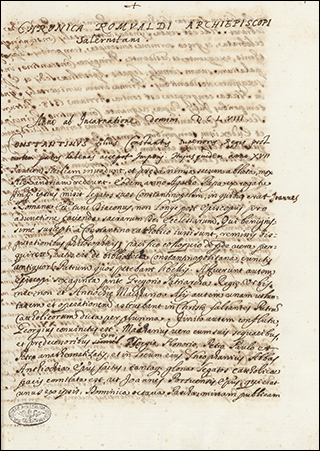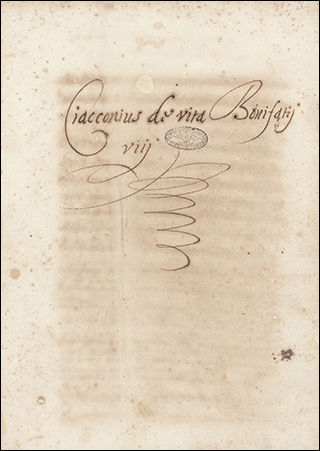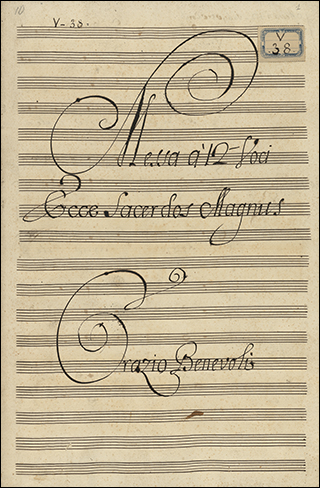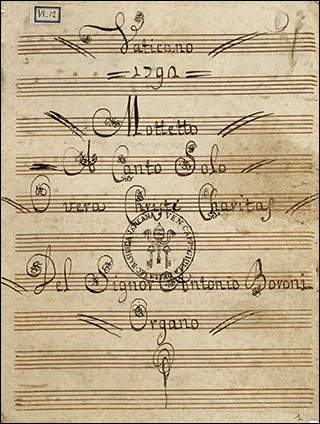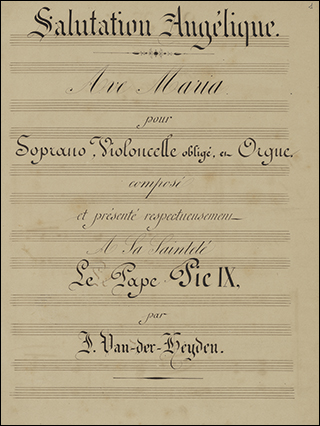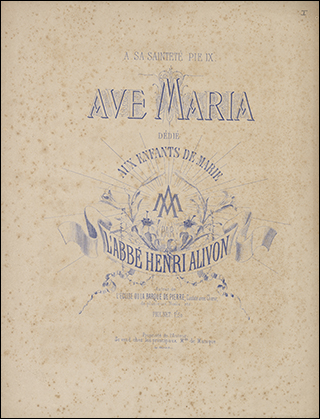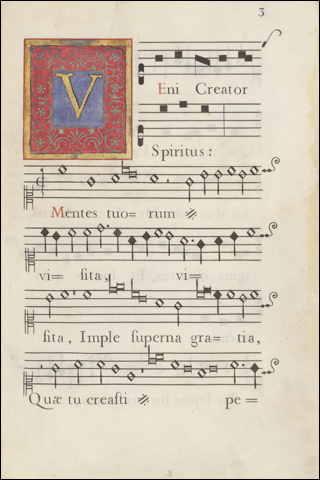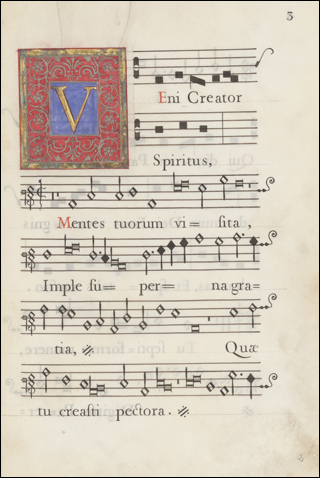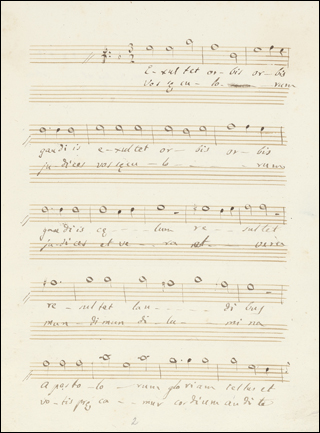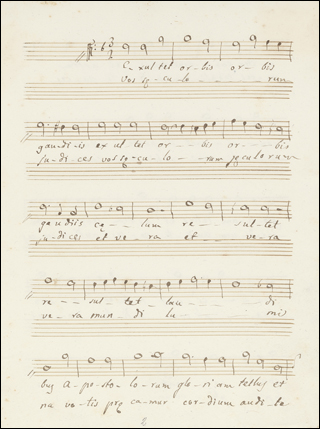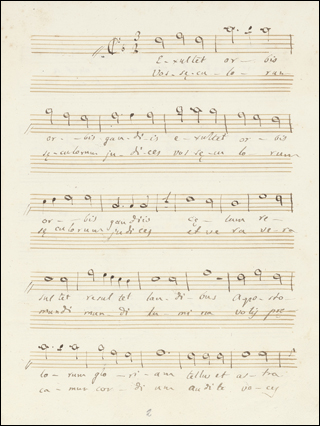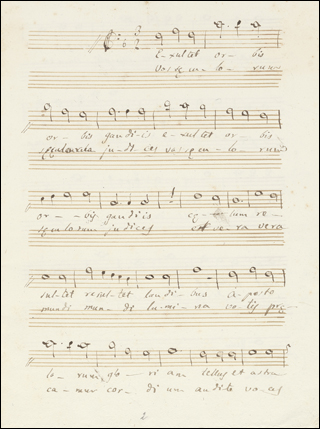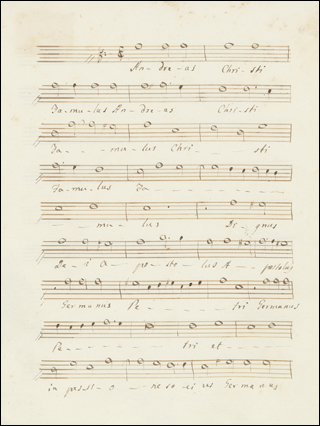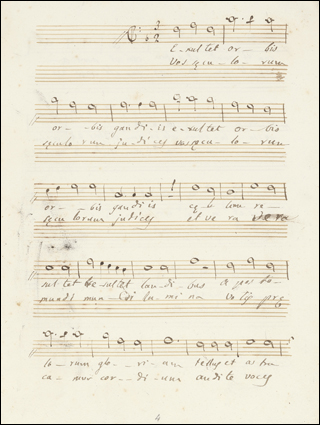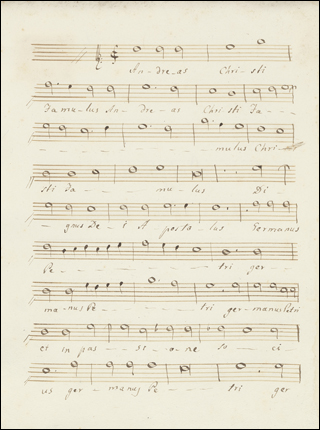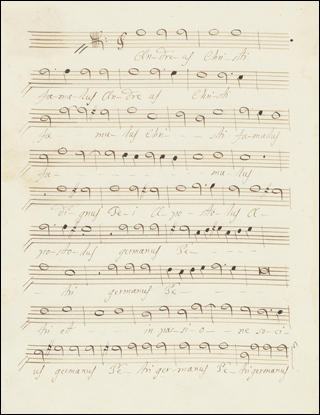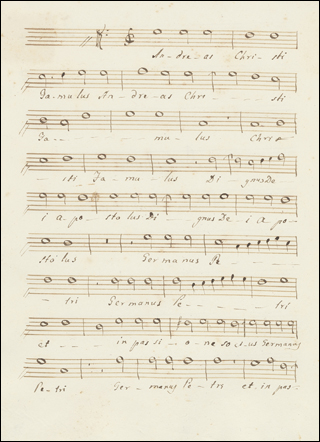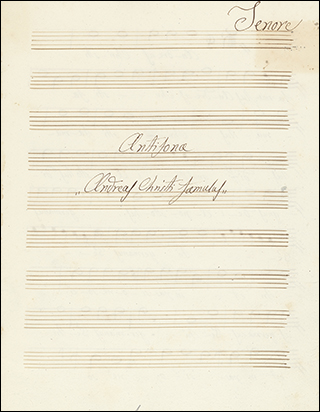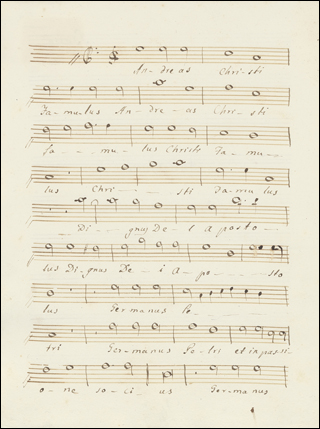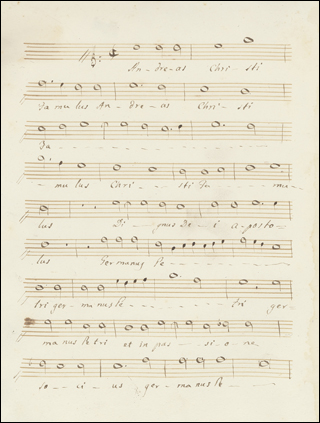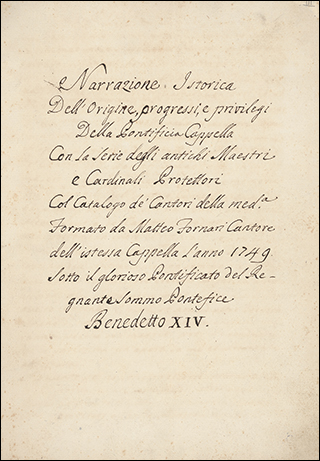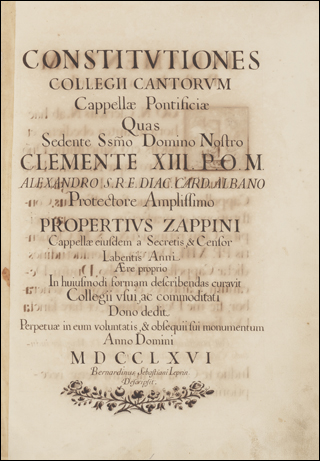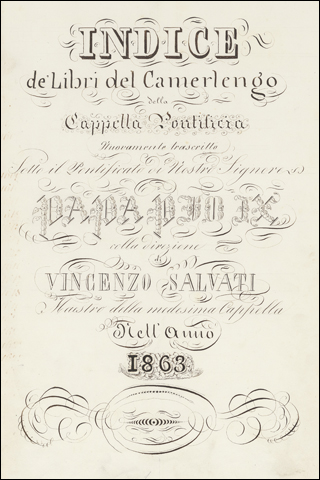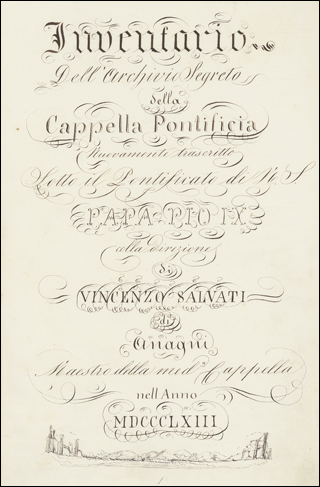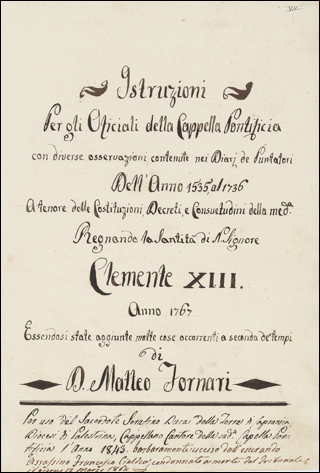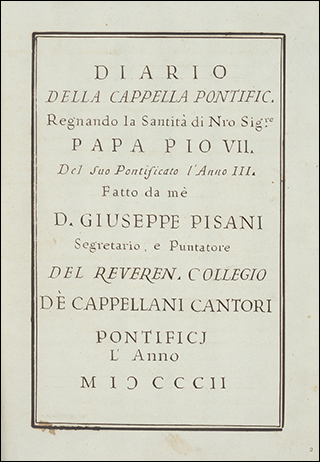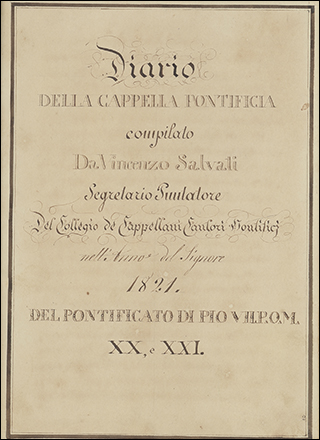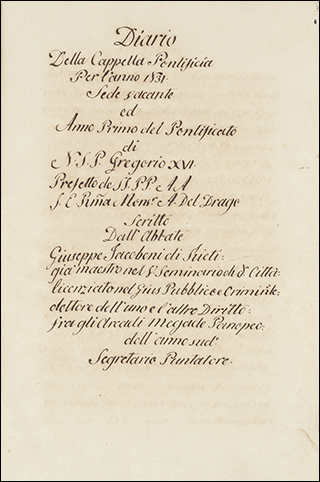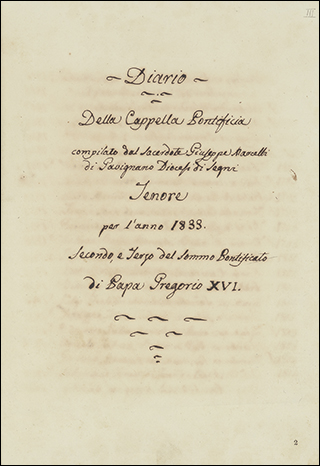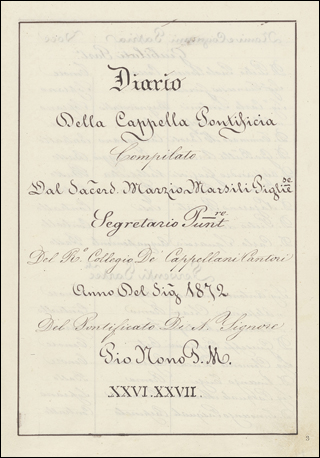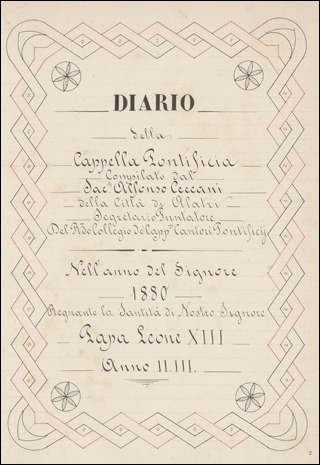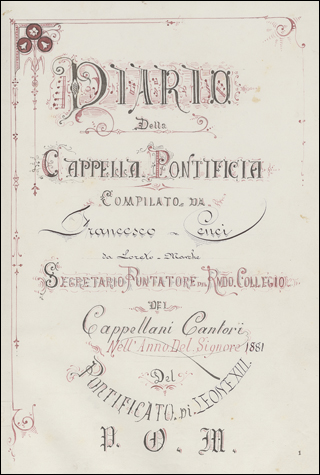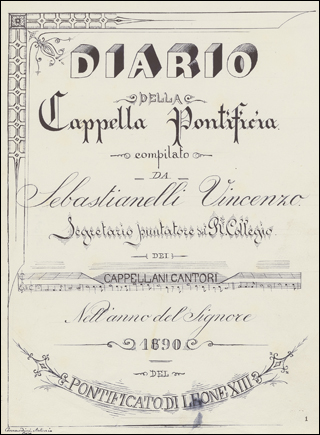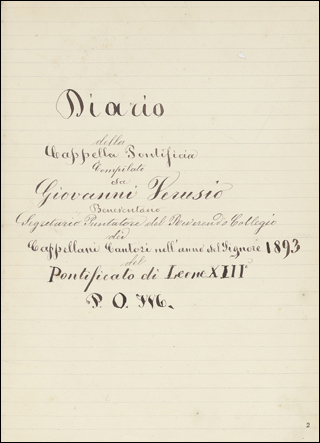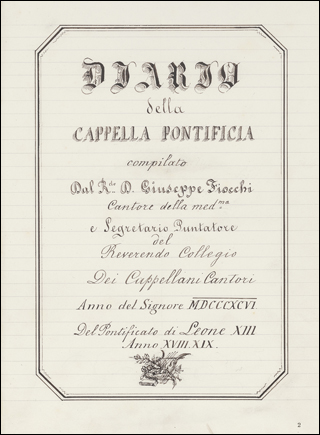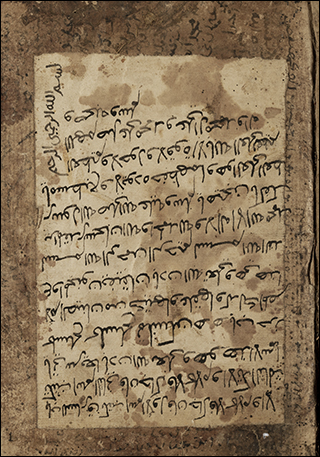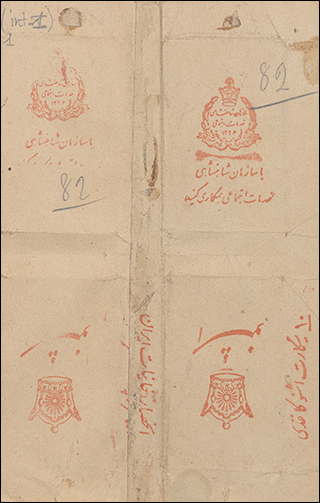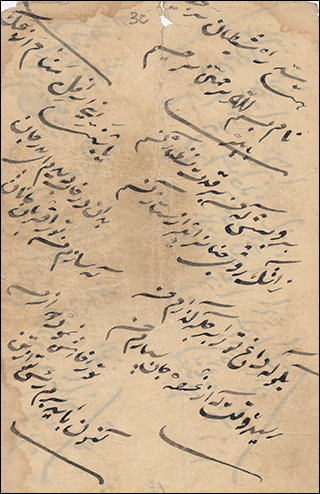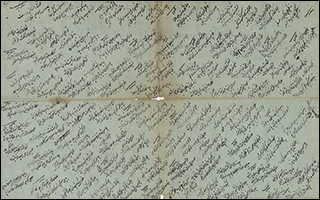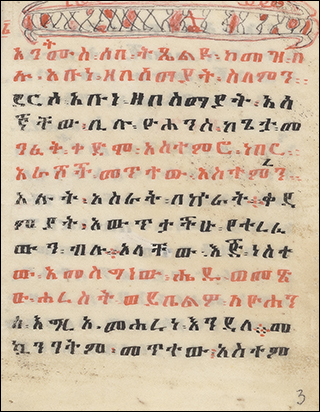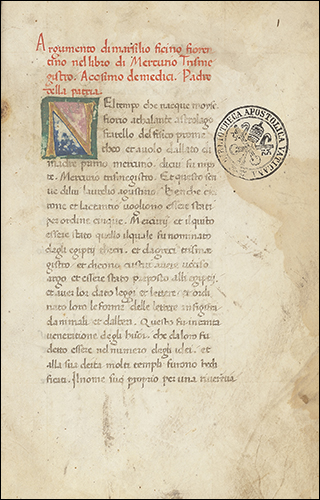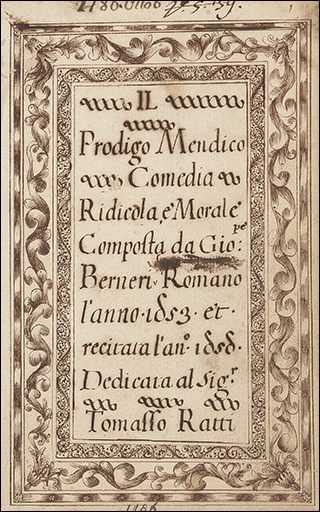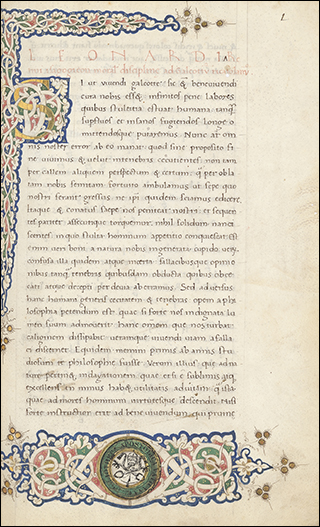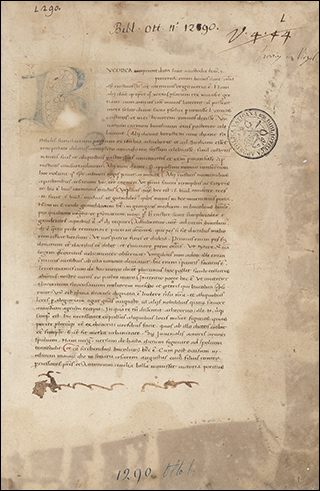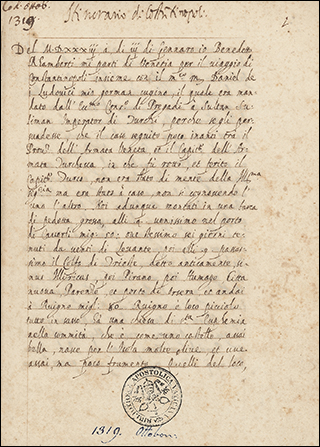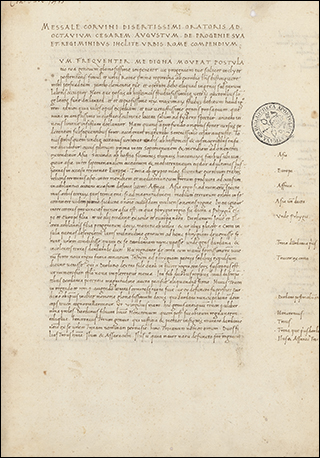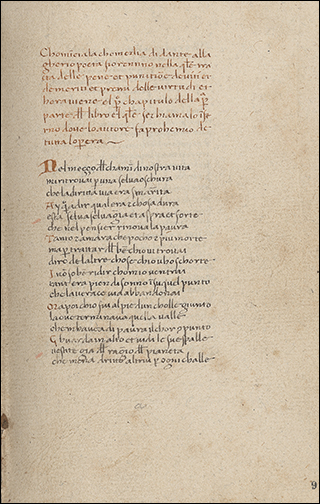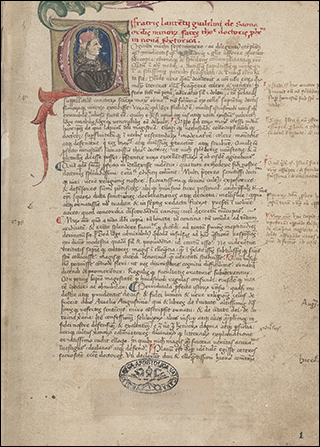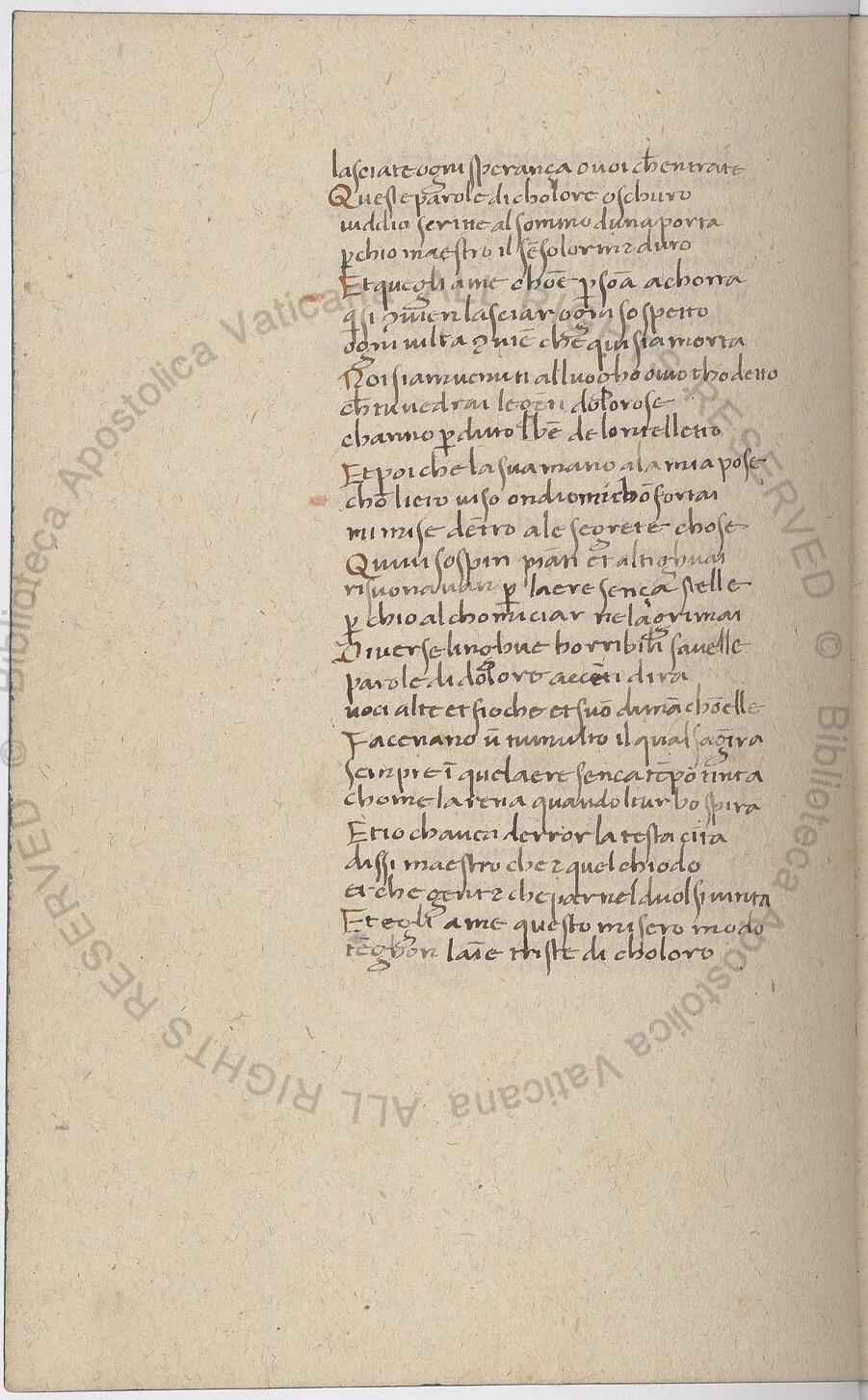A total of fifty-eight manuscripts were digitized for the conclave/elevation week. Leading the pack this week was Capp.Sist with nineteen manuscripts, many being single volumes of multi-volume musical works. Following that were Barb.lat and Capp.Sist.Diari, each with ten. This brings the total from Capp.Sist.Diari collection to 199, or almost 2/3 of the total volumes scanned since the work commenced in November of last year. Following that were Ott.lat with six and Capp.Giulia with four. The rarely-seen Cerulli.pers contributed three and Vat.lat added two. A single volume in Harari script, an Ethiopic dialect often traditionally written with Arabic script, was added from Cerulli.et, and another Ge'ez volume from Comb, rounded out the week
To the right is f.14v from Vat.lat.10272, a copy of Dante's Comedy. This page has the middle of Canto III from the Inferno, the page starting with the famous epigram on the gates of Hell "Lasciate ogne speranza, voi ch’intrate" (Abandon all hope, you who enter here). Seen in a Humanist semi-cursive this would not be at all notable, except for the fact that this manuscript was written in the 19th C, imitating the style of the 15th. The scribal work is falsely attributed, in a colophon on f.268r, to one Ser Nicholaio de Sancto Miniato, and dated to 1351 (despite being in a 15th C hand). Per the work of Sandro Bertelli, this fraud was perpetrated by Anicio Bonucci, a philologist and forger who died in 1874.
At the bottom are some staves from f.2v of Capp.Sist.215.pt.28, a part of a multi-volume collection of Hymns and Motets from 1721. The musical notation in it is interesting due to it using both neumes, as one would see in plainchant, and and white-note notation, as was common in 18th C music. This snippet juxtaposes two sequential lines from the page, lines 4 and 5. At the end of line 5, there's even a different style of custos than is used up the page for the plainchant lines.

